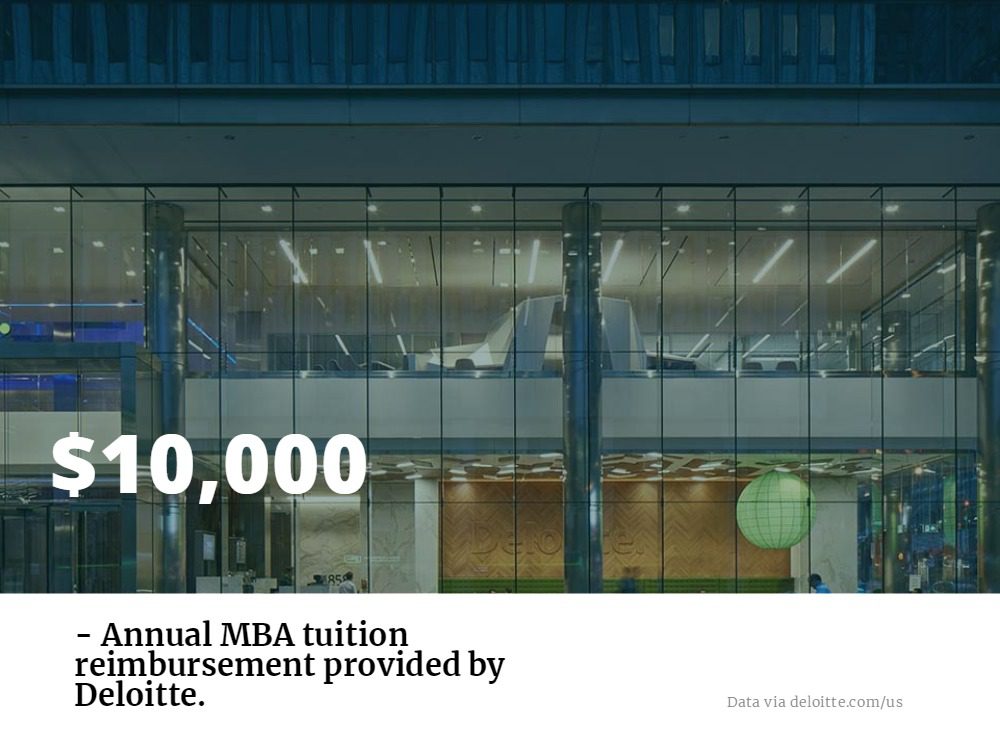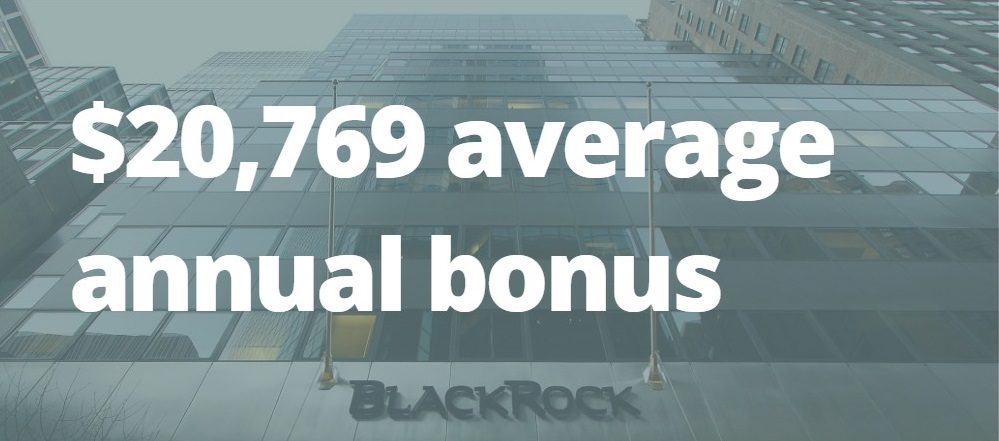Kobe Bryant Speaks at USC Marshall, and More – Los Angeles News

Take a look at some of the biggest news stories of the week from our favorite Los Angeles business schools.
Kobe Bryant, at USC Marshall Event, Shares His Grit and Competitive Edge – USC News Room
The Performance Science Institute, a multidisciplinary center at the USC Marshall School of Business, recently hosted five-time-NBA champion, Los Angeles icon, venture capitalist, and recent Academy Award-winner Kobe Bryant, who spoke to a sold out crown at USC’s Bovard Auditorium. Bryant discussed a number of topics, from his early days of playing basketball to the challenges of changing course from basketball to business. Bryant has become a leader and innovator in the field of business in addition to his basketball success. He established a $100 million venture capital fund in 2013 and debuted Granity Studios, a media and animation studio, after his retirement in 2016.

Bryant speaking at USC / Photo via William Vasta
The event also included the awarding of the Jake Olson Vision Awards, a new scholarship established by USC student leader Jake Olson. The scholarship, which was established as an award for students who have had to overcome adversity to join USC, was awarded to Cailin Stroyke and Isiah Dixon at the start of the event.
To read more about Kobe Bryant and his visit to USC Marshall, click here.
The 29 Most Powerful Business Degrees in the World – Business Insider
A new ranking covered by Business Insider names the Anderson School of Management at UCLA among the most powerful business degrees in the world. Along with the Haas School of Business at UC Berkeley and the Stanford Business School, Anderson is one of three schools from California to make the list.
The ranking was compiled by the education company QS, which compiles a list of top business degrees around the world each year. The ranking takes into consideration factors such as an institution’s reputation among employers and in the academic community, in addition to the number of research citations the school gets in published papers within the fields of business and management. The Anderson School of Management dropped two places this year from 16th to the 18th highest ranked business degree in the world. While the list includes several schools from throughout the United States, top schools from the U.K. and Europe—like the London Business School—as well as top schools from Australia also make the list.
Click here to read more about the most powerful business degrees in the world.
Digital Transformation: At a Crossroads – UCI Paul Merage School of Business Newsroom
The Paul Merage School of Business at the University of California, Irvine recently hosted the annual Road to Reinvention conference at the end of March, hosting a number of top speakers within the industry to share their insights on digital innovation. The event was hosted by the Center of Digital Transformation (CDT) at Merage, with the CDT’s founder—professor of information systems and computer science Vijay Gurbaxani—as the keynote speaker.
“We are at a crossroads,” Gurbaxani said in his opening speech. “Technology is extraordinarily powerful and can lead to fantastic things for society and the economy. But, we have to manage the risks. It is incumbent upon every one of us to lead this change responsibly.”
Read more about the insights shared at the 2018 Road to Reinvention conference here.
What Are The 5 Highest Paying Consulting Firms in the World?

“Is this going to be worth it?”
If you are currently or have ever considered earning an MBA degree, it’s likely that you’ve asked yourself this question. Given the burgeoning cost of tuition—especially for top business programs—plus the loss in income and cost of living while pursuing your education, it’s a fair question to ask. Does it make sense to invest this sort of money into your education with no guaranteed result?
Of course, many of the benefits of earning an MBA simply can’t be quantified and boiled down to raw numbers. The new opportunities created through study abroad or case competitions, the expansion of your professional network and chance to connect with industry professionals. All of these considerations can make it difficult to ever truly gain perspective on an MBA degree’s worth.
Thankfully, there are some areas where the numbers still do the talking. In particular: post-graduate salary. This is one of the easiest and simplest ways to see the true value of an MBA. And it’s not just helpful to look at the increase in salary after earning an MBA—it can be just as enlightening to see the difference in post-graduate salary for various MBA concentrations. This data can help you make important choices about what kind of path you’d like to pursue while earning your MBA, and how to make the most out of the time and money spent on your education.
U.S. News & World Report found found that strategy, while one of the least popular MBA concentrations (chosen by just 4.3 percent of business school students), led to some of the highest paying jobs after graduation. Since students concentrating in strategy typically go into jobs at consulting firms following graduation, they are more likely to earn high salaries that can help increase the overall value of their degree—not to mention pay off their student loans much faster.
For students looking to increase the worth of their MBA with a high-paying job in consulting, we’ve rounded up the highest paying firms in the consulting industry. Working towards careers in these top companies will guarantee that the answer to “is this going to be worth it?” will always be “yes!”
The 5 Highest Paying Consulting Firms

Formerly known as Ernst & Young, EY-Parthenon is one of the top paying consulting firms for MBA graduates. The company is headquartered in London, England, with more than 250,000 employees at offices throughout the world. EY is known as one of the “Big Four” accounting firms, joining Deloitte, PwC, and KPMG as the four largest professional services networks in the world. Last year, EY was also named 29th on the “100 Best Companies to Work For” list from Fortune.
According to Business Insider, EY-Parthenon employees with just an undergraduate degree make up to, on average, $110,000 annually, including base salary, signing bonuses, and extra incentives. Management Consulted data found that MBA grads earned an astounding base salary of $170,000 at the company. That figure doesn’t include signing bonuses, relocation expenses, and more.

Founded in 1926 by University of Chicago economics professor James McKinsey, McKinsey & Company has transformed into one of the world’s most iconic consulting empires. The company has opened in more than 120 global cities, employing more than 14,000 consultants—many of which comes from prestigious MBA institutions.
According to Management Consulted data, McKinsey & Company is the second-highest paying consulting firm in the world for MBA grads, with offered base salaries coming in at $152,000. With an added potential performance bonus of $35,000, those figures can rise to $187,500 in just one year.

Strategy& has grown exceedingly since its beginnings as Booz & Company in 1914. One of the top global strategy consulting firms in the country, the company now has 57 offices throughout the world, revenue upwards of $1.3 billion, and 3,000 employees. Nearly a century after their founding, in 2013, the company was acquired by PricewaterhouseCoopers (PwC) and officially renamed to Strategy&.
The company comes in third overall among for annual base compensation for MBA grads, at a lofty $152,000. The company also offers one of the most unique and lucrative retirement funding options for consulting employees, with 6 percent of base salary and bonuses matched for its 401k plan.

L.E.K. is technically the youngest company to make the top five, which was founded in the early 1980s by former Bain partners James Lawrence, Iain Evans, and Richard Koch. Headquartered in both Boston and London, L.E.K. is also the smallest company on this list, with around 3,000 employees.
Despite its size and relative newness in comparison to many of the other companies on this list, L.E.K. pays its employees more-than-handsomely, offering a tempting base salary of $150,000 and upwards of $25,000 in performance-based potential incentives.

Bain & Company, headquartered in Boston, Massachusetts, is a global management consultancy firm providing advice for public, private, and non-profit organizations. Along with the Boston Consulting Group and McKinsey & Company, Bain & Company is one of the “Big Three” firms. Founded in 1973, Bain & Co. today has more than 8,000 employees throughout the world and an estimated revenue between $3.7 and $4.5 billion.
Bain offers its recently employed MBA grads a starting base salary comes in slightly above aforementioned Deloitte employees, snagging $148,000 per year, which can grow to $185,000 in total compensation.
Honorable Mentions

The Boston Consulting Group, founded in 1963, now has more than 90 offices in 50 countries, advising clients throughout the private, public, and not-profit sectors.
The Massachusetts institution offers its MBA graduates right around the same compensation as Bain & Co, the companies unofficial direct competitor. Base salaries come in around $147,000, but massive (and we mean massive) bonus incentives can bring that total up to $191,100.

Another one of the “Big Four,” Deloitte has witnessed non-stop growth since its founding in 1845. Today, the firm makes more than $38.8 billion USD in revenue with roughly 263,900 employees throughout the world. As of 2016, Deloitte was ranked as the sixth largest privately owned organization in the U.S. The firm’s offerings span across audit, tax, consulting, financial advisory, and enterprise risk services, with offices across the world in cities like Los Angeles, Tokyo, Madrid, Tel Aviv, and many more.
Management Consulted data found that MBA grads at Deloitte reported a base salary slightly smaller than its aforementioned contemporaries, pulling in $140,000 per year. Deloitte separates itself from its competition by offering returning interns a potential to pay for the send year of their MBA education in the form of reimbursement.
How to Get Your Employer to Pay For Your MBA

Earning an MBA holds tons of value in the business world—an advanced business degree can open doors that may otherwise have been closed, and boasts a high return on investment thanks to the top-level salaries that MBAs command.
Graduate school—and all of the coursework that comes with it—can be an intimidating challenge, but paying for it doesn’t have to be. Aside from scholarship, grant and fellowship opportunities at business schools across the country, more and more companies are placing a higher importance on tuition reimbursement programs, and expanding opportunities for paid MBA tuition reimbursement.
How can you get your employer to pay for your MBA studies? Let’s take a closer look.
Getting Your Employer to Pay For Your MBA
First thing’s first: You need to find out if your current employer offers tuition reimbursement to its employees. The terms of reimbursement vary depending on the company, with some corporations not offering any sort of program at all. Those that do offer some sort of compensation may do so on a course-by-course basis, or as a lump-sum reimbursement package for coursework in relevant degree plans.
“Organizations typically support MBA pursuits for two reasons,” J. Todd Rhoad, managing director of Atlanta’s BT Consulting, told USA Today. “Employee development and succession planning. In the first case, companies support the cost of MBA programs as part of their commitment to employee training and development.”
If you want to convince your employer that your education is worth investing in, you’ll need to show that earning an MBA will further your business acumen and understanding of your industry, and ultimately help your company reap those benefits.
“Usually, an employee has to already been delivering great results within the company,” Roderick Lewis, international relations director at the ISCTE Business School, University Institute of Lisbon, told Business Insider.
“If you haven’t already convinced your company, then asking them to [sponsor your education] becomes really difficult,” Lewis says.
USA Today also outlined a few checkboxes to hit when determining how valuable earning an MBA would be for your organization:
- Do current members of middle or upper management hold advanced business degrees?
- Does your company have the available revenue to invest in employee education?
- Would someone with the type of advanced training you seek bring clear advantages to the company?
If those point hold true in your situation, then start researching which programs specialize in providing the skills that your company needs. Keep in mind: You do not have to limit yourself to business schools in your metro thanks to popularity of Online MBA programs. There may have once been a stigma against online programs, but the of the matter fact is that many of the top online MBAs on U.S. News & World Report’s annual rankings also rank highly on the publication’s top campus-based graduate business programs list.
Some of these schools include:
- University of North Carolina – Chapel Hill (Kenan-Flagler)
- Indiana University – Bloomington (Kelley)
- Temple University (Fox)
- Arizona State University (Carey)
- University of Florida (Hough)
- Carnegie Mellon University (Tepper)
- University of Texas – Dallas
Once you’ve found the right program, you’ll want to craft a brief proposal for your employer. In it, you’ll want to mention how you fit the company’s tuition reimbursement policy, and list the advantages that continuing your education can bring you and your company. Don’t shy away from providing data on how much assistance you may need and how this investment will pay off for everyone, while also ensuring your employer that you’ll remain committed to the company during your degree program, or won’t jump ship after earning your degree.
“A proposal should address the benefit to the company,” Rhoad says, “(including) areas where the company could improve and how you will help them, a review of the courses to be taken and how they will provide knowledge that can help improve the company’s performance.”
Companies That Provide MBA Tuition Reimbursement
Investopedia recently compiled a list of companies have stated that they place a high value on their tuition assistance benefits, and provide tuition reimbursement for the educational costs of an MBA.
According to Investopedia, consulting companies lead the market in tuition reimbursement programs for MBA courses. These firms also pay the highest salaries for MBA alumni. Deloitte has the most robust tuition reimbursement plan, providing employees with up to $10,000 per year in MBA reimbursements. The firm requires two years of work with the company and a commitment to work for the company after graduation in order to receive the tuition assistance benefit.

Financial institutions and banks also place a high value on employees with MBAs, and provide tuition assistance. One example is Bank of America, which provides employees with annual tuition assistance of up to $5,250 for advanced degree coursework. Wells Fargo also has a track record of paying for MBAs, doling out up to $5,000 annually for tuition expenses.
The booming tech sector is also hiring MBAs left and right, with some firms developing their MBA talent in house by offering to pay MBA tuition expenses. Apple tops the list of tech companies offering tuition assistance, providing reimbursement of up to $5,000 annually. MBA degrees are even more coveted in the the specialty defense technology sector, as Raytheon, one of the top defense technology companies in the world, offering to pay up to 100 percent of employees’ college tuition for graduate school.
Other leading companies offering tuition reimbursement to employees include:
- Chevron: A market leader in the energy sector, Chevron offers offers tuition reimbursement of up to 75 percent for its employees.
Ford: Ford’s education tuition assistance program provides employees with tuition reimbursement of up to $5,000 annually for an MBA. - Procter & Gamble: This firm has one of the leading tuition reimbursement benefits in the consumer goods industry, providing reimbursement for up to 80 percent of educational costs with a limit at $40,000.
- AT&T: This telecom giant provides employees with up to $5,250 annually for tuition assistance, for a maximum reimbursement of up to $25,000 for graduate school courses.
School v. School: NYU Stern or Columbia Business School?

What happens when you pit two of the New York metro’s top business school’s against each other in a head-to-head duel of MBA might? It’s a school vs. school showdown, as we compare Columbia Business School to the Stern School of Business. Let’s take a deeper dive! Continue reading…
MBA Job Opportunities: BlackRock

Though many MBA grads are passionate about their career prospects, those driven to work in the financial industry may be more reticent to commit to a life of uncomfortable suits and harsh fluorescent lights. A TINYpulse study found that employees at financial service companies have some of the lowest career satisfaction rates out there, despite stable salaries. The study put the amount of financial service employees who are happy with their work environment at less than 22 percent. In fact, an eFinancialCareers study found that one third of bankers hate their jobs. So, does an MBA and a penchant for finance mean a life of tolerating punishing work hours with little recognition from colleagues and superiors? Not necessarily.
Recent MBA grads with a penchant for finance will be pleased to learn that BlackRock, Inc., one of the largest asset-management companies in the world, provides a different kind of environment from the majority of financial institutions. Business Insider consistently ranks BlackRock as one of the premier financial employers in the U.S, writing, “The firm is big on employee development plans and employee engagement. For example, employees get to pitch ideas to senior executives at the two-day Innovation Summit, which helps spur new products for retirees and connect coworkers across different departments, according to LinkedIn.”
Why Work at BlackRock?
In a Business Insider interview, Jeff Smith, Senior Managing Director at BackRock’s Head of Global Human Resources Group, called BlackRock, “… an incredibly passionate place with a very clear sense of purpose that comes from Larry Fink, our founder and CEO, to everyone else in the company.”
BlackRock is renowned for its relaxed corporate culture, and 73 percent of its employees report high job satisfaction. The company employs over 130 investment teams in 30 different countries, so there is ample opportunity to join BlackRock beyond its New York City headquarters.
BlackRock’s effort to create a successful and diverse environment has been nothing short of empowering. Since 2015, over 2000 of the company’s prominent employers joined in the “Driving Better Decisions” initiative, which aims to help remove “unconscious bias” in decision-making, according to the official BlackRock website, as well as rethink the way human resources recruits and develops diverse talent. While the gender ratio at the company is still predominantly male, BlackRock has also made a concerted effort to increase female employment in senior management roles to 30 percent by the end of the decade, signing the HM Treasury’s Women in Finance Charter.
Pay Day
According to recent PayScale survey figures, MBA grads, despite their role, earn around $86,000 annually at BlackRock. These figures fluctuate depending on the specific role, rising to as much as $316,000 per year for investment strategists. According to the same data, bonuses at the company are also pretty exceptional. Portfolio managers reported an average bonus of $39,000 per year, while even the lowest bonus figures neared $10,000 per year.

Figures according to PayScale data.
Interning at BlackRock
For students nearing the end of their higher education journey, BlackRock offers summer internships for a glimpse of life at the company. BlackRock’s global Analyst Program is a two year-long entry level program for new graduates. The program kicks off with a training in New York City. Throughout the program, trainees will develop their skills in communicating with clients and understanding how to help them manage fiduciary matters.
BlackRock offers several other internships, and is conscious of promoting diversity in their industry. The Founders Scholarship provides merit rewards and a summer internship to students who identify as Black, Hispanic, Native American, LGBTQ, or disabled. Merit awards for this scholarship can be as high as $15,000.
Getting Hired
In an interview with eFinancialCareers, Jonathan Jones, director of global campus recruiting at BlackRock, gave some insight into how interested candidates can get their foot in the door at the company.
“What I think makes a BlackRock person stand out though, is that we look for people who embody or represent our principles. For example, we have a commitment to innovation. Innovation—original thinking, problem solving, and creativity – is central to our identity. Equally, we have a strong commitment to teamwork, and we look for people who can join the dots between our disparate activities in ways which can solve problems for our clients,” Jones said.
According to Jones, BlackRock hires many recent university graduates with Bachelor’s degrees, and the company also hires MBA candidates who have work experience that is relevant to specific positions, such as real estate and equity research.
A recent highlight from Clear Admit on the best business school’s for MBA grads that want to break into the industry that these five schools produced the most finance employees:
- Columbia Business School
- University of Chicago Booth School of Business
- New York University Stern School of Business
- University of Pennsylvania’s Wharton School
- Cornell Johnson Graduate School of Management
BlackRock has been actively recruiting at the world’s high ranking universities, stopping by Columbia Business School as recently as last month for an information session. Read here to find out for more events the company is hosting in the coming weeks and months and check out more about a potential career with BlackRock below.
MBA Alumni Spotlight: HP CEO Meg Whitman

Meg Whitman has been slaying the business world one corporation at a time. She’s the true definition of a businesswoman who doesn’t play when it comes to her money—and success. She’s currently reigning over Hewlett-Packard Enterprise, but she’s been building her empire for more than 20 years.
And she’s not done.
The CEO of Hewlett-Packard Enterprise set her expectations high from the start. Raised in the wealthy suburbs of Oyster Bay, New York, on Long Island, Whitman has ties to Boston’s elite, reports Business Insider. She eventually left the nest to study at Princeton University. While she initially had interests in medicine, Whitman changed her major to economics, eventually going on to receive her MBA at Harvard Business School.
Her first major gig landed her in Cincinnati in the late ’70s when she joined P&G, a consumer goods corporation. That’s where her feminist leanings truly began to reveal themselves. Whitman learned that the company refused to give female employees company credit cards because it didn’t find it safe for women to travel alone, as Business Insider describes. The lady boss got the company to change that policy. She continues to influence the corporation through its board, on which she sits.
READ MORE: “Top MBA Recruiters: Hewlett-Packard”
From there, it was a wrap. Whitman went on to work for major toy company Hasbro, where she was in charge of the famous Mr. Potato Head, as well as bringing Teletubbies to U.S television. Where Whitman left one of her greatest marks, however, was online retailer eBay. In 10 years, she helped increase the company’s revenue from $4 million to $8 billion, and its employee numbers grew from 30 to 15,000, creating one of the most massive and quick corporate turnarounds in recent memory.
Her hard work there paid off. She moved on to become CEO of Hewlett-Packard in 2011, where she’s transformed the company and even separated it into two entities: Hewlett-Packard Enterprise and HP Inc. That’s where she plans to stay—even amid offers from places like like hyper-valued ride sharing startup Uber. The company was seeking a new CEO, preferably a woman, but she wasn’t interested.
Her time at Hewlett-Packard hasn’t been all sunshine though. She took her role as CEO during turbulent times and was forced to do massive layoffs to salvage the company. The layoffs began in 2012 and continued well into 2015. But making tough decisions is part of what makes Whitman a great leader—at least, in the business world.
Whitman ran for governor of California as a Republican in 2010. Though current politics might show that some people value a leader with a business background Whitman ultimately lost to current Governor Jerry Brown.
Politics may not be her game, but her place in business is abundantly secure. In 2015, she was named 7th overall on Fortune‘s list of highest paid women and 7th on its list of most powerful women. She kept the latter title last year too—and moved up the list when it came to her income. Whitman’s success highlights how far an MBA can take someone, especially women, who aren’t always as welcome in the business world as some of their male colleagues.
